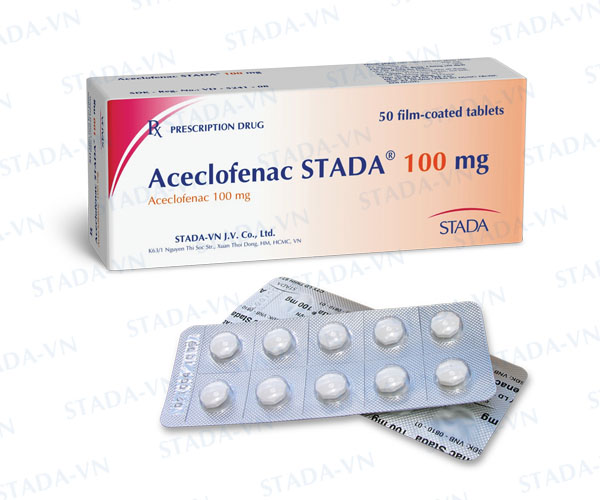Aceclofenac is is the active ingredient under the name of Proflam, which is a non-steroidal anti-inflammatory, analgesic for oral and topical use.Its acts on inflamed tissues. It is used for the relief of pain and inflammation in rheumatoid arthritis, osteoarthritis and ankylosing spondylitis. This medicine can also be found in pharmacies under the name Cecoflan.
Indications for Aceclofenac
- Post surgical pain.
- Periartritis scapula humeral
- Extra articular rheumatism.
- Rheumatoid arthritis.
- Osteoarthritis.
- Ankylosing spondylitis
Benefits of Aceclofenac
1. Inflammation and Pain.
2. Trauma Surgery;
3. Surgery;
4. Plastic Surgery;
5. Infections;
6. Dermatology;
7. Dentistry;
8. Obscure and Gynecology;
9. Sinusitis and Bronchitis;
10. Arthritis
How to use Aceclofenac
Each tablet contains 100 mg Aceclofenac (active substance).
The usual dose is 100 mg every 12 hours. The dosage regimen should be individualized, according to the indication and other clinical variables.
Take aceclofenac exactly as your doctor tells you. The usual adult dose is one 100 mg tablet taken twice daily, preferably in the morning and evening.
Contraindications for Aceclofenac
Pregnancy in the second half; allergy to aspirin; nasal polyps associated with aspirin-induced bronchospasm.
Precautions of Aceclofenac
- Avoid driving and using dangerous machines
- Avoid using it if you are allergic to acetaminophen
- History of gastroulceration
- Severe heart failure
- Severe hepatic impairment
- Severe renal impairment
- Do not take acetaminophen if you consume alcohol every day
- Patients recovering after surgery
- Gastrointestinal problems
- Use of diuretics
- Allergy to Aceclofenac
- Asthma
- Hypersensitivity
- Hepatic insufficiency
- Acute rhinitis
- Urticaria
- Active peptic ulcer.
